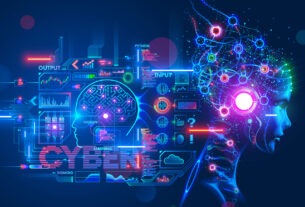Introduction
The world of technology is advancing at a rapid pace, with new innovations and breakthroughs emerging every day. From artificial intelligence (AI) to blockchain, from 5G connectivity to quantum computing, the tech landscape is evolving faster than ever. These developments are reshaping industries, improving our daily lives, and opening up exciting possibilities for the future.
In this article, we’ll explore the latest technology updates that are making headlines. We’ll look at key trends, innovations, and challenges in areas such as AI, cloud computing, augmented reality (AR), virtual reality (VR), and more. Additionally, we will examine the potential implications of these developments on society and answer some frequently asked questions about emerging technologies.

1. Artificial Intelligence (AI): Revolutionizing Industries
Artificial Intelligence continues to be one of the most transformative technologies in recent years. AI is being used across a wide variety of industries, including healthcare, finance, manufacturing, and entertainment. From chatbots to autonomous vehicles, AI is redefining what’s possible in the digital age.
Key AI Innovations
In the AI space, large language models like OpenAI’s GPT-4 have garnered significant attention for their ability to understand and generate human-like text. These models are being integrated into customer service tools, content creation platforms, and even mental health support services.
AI in healthcare is also experiencing rapid advancements. Machine learning algorithms are being used to analyze medical data, help doctors make diagnoses, and even predict patient outcomes. One promising area is the use of AI in drug discovery, where AI-driven models are helping scientists identify potential treatments faster than traditional methods.
Challenges and Ethics
While AI holds great promise, it also presents significant challenges. There are concerns around privacy, bias in algorithms, and the ethical implications of AI-powered decision-making. Ensuring that AI systems are transparent, fair, and aligned with human values will be essential as the technology continues to develop.
2. 5G Connectivity: Unlocking New Possibilities
5G, the fifth generation of wireless technology, is slowly becoming a global standard. Offering faster speeds, lower latency, and more reliable connections, 5G promises to unlock a new era of connectivity that will have a profound impact on industries like telecommunications, healthcare, and entertainment.
How 5G Will Change the World
One of the most exciting aspects of 5G is its ability to support the growth of the Internet of Things (IoT). With 5G, billions of devices can be connected simultaneously, leading to smarter cities, factories, and homes. This will enable everything from autonomous vehicles to advanced industrial automation systems.
In healthcare, 5G can enable real-time remote monitoring of patients and the use of telemedicine in areas with limited access to healthcare services. Additionally, 5G can support the development of augmented and virtual reality applications, creating immersive experiences in gaming, education, and retail.
Global Rollout
The rollout of 5G is progressing, but there are challenges. Building the necessary infrastructure to support 5G requires significant investment, and some regions are experiencing delays. Additionally, concerns about potential health effects and data privacy issues have sparked debates around the widespread adoption of 5G.
3. Quantum Computing: The Next Frontier
Quantum computing is often touted as the next major technological breakthrough. Unlike classical computers, which process data in bits (0s and 1s), quantum computers use quantum bits (qubits) that can represent and process multiple states simultaneously. This enables quantum computers to solve certain complex problems much faster than traditional computers.
Current Developments
Tech giants like Google, IBM, and Microsoft are investing heavily in quantum computing research. In 2023, Google announced a major milestone in quantum computing, claiming to have achieved quantum supremacy by solving a problem that would be practically impossible for classical computers to solve.
While quantum computing is still in its early stages, it holds immense potential in fields such as cryptography, material science, drug development, and artificial intelligence. For example, quantum computers could break current encryption methods, leading to the development of more secure forms of encryption.
Challenges and Timeline
The path to practical, large-scale quantum computers is still a long one. Currently, quantum computers are highly sensitive to environmental disturbances and require extremely low temperatures to function. Overcoming these technical challenges is essential before quantum computing can be widely used in real-world applications.
4. Augmented Reality (AR) and Virtual Reality (VR): Redefining Experiences
Augmented Reality (AR) and Virtual Reality (VR) are technologies that have gained significant traction in recent years. While VR immerses users in entirely virtual environments, AR overlays digital elements onto the real world, enhancing our perception of reality.
The Growth of AR and VR
In 2023, AR and VR technologies are being adopted in industries such as gaming, education, healthcare, and retail. VR gaming continues to gain popularity, with platforms like Oculus Rift and PlayStation VR offering highly immersive experiences. In education, AR is being used to create interactive learning experiences that bring complex concepts to life.
One of the most significant applications of AR is in the retail sector. Companies like IKEA have developed AR apps that allow customers to visualize how furniture will look in their homes before making a purchase.
The Metaverse and Beyond
The metaverse, a virtual reality space where users can interact with a computer-generated environment and other users, is another area where AR and VR are making an impact. Companies like Meta (formerly Facebook) are heavily investing in building the metaverse, which could eventually become a major aspect of the digital economy.
5. Cloud Computing: The Backbone of the Digital Economy
Cloud computing has become the backbone of the modern digital economy. By allowing businesses and individuals to store and access data and applications over the internet, cloud computing has revolutionized the way we work, collaborate, and consume technology.
Cloud Trends
One of the major trends in cloud computing is the rise of hybrid and multi-cloud environments. Companies are increasingly using a combination of public and private clouds, as well as multiple cloud providers, to ensure flexibility, security, and reliability.
Additionally, the integration of AI and machine learning into cloud platforms is enabling businesses to unlock new insights and drive innovation. Cloud providers like Amazon Web Services (AWS), Microsoft Azure, and Google Cloud are offering a wide range of AI tools and services to help organizations leverage their data more effectively.
Security and Privacy Concerns
As more businesses move to the cloud, data security and privacy concerns have come to the forefront. Companies must ensure that they are using robust encryption methods and complying with regulations like the General Data Protection Regulation (GDPR) to protect sensitive data.
Conclusion
The pace of technological innovation shows no signs of slowing down. From AI and 5G to quantum computing and the metaverse, the future of technology is filled with exciting possibilities. These advancements are not only transforming industries but also reshaping the way we live, work, and interact with the world around us.
However, alongside the opportunities, there are significant challenges that need to be addressed, including ethical concerns, security risks, and the potential for job displacement. As we continue to advance, it will be crucial to strike a balance between innovation and responsibility, ensuring that technology serves the greater good.
FAQs About Tech Updates
1. What is Artificial Intelligence (AI)?
Artificial Intelligence refers to the simulation of human intelligence in machines that are programmed to think and learn. AI is used in various applications, from voice assistants like Siri to autonomous vehicles and machine learning algorithms that analyze data.
2. How does 5G work?
5G is the fifth generation of wireless technology, offering faster speeds, lower latency, and more reliable connections compared to previous generations. It operates using higher frequency radio waves and can support a larger number of connected devices simultaneously.
3. What is the Metaverse?
The metaverse is a collective virtual shared space that is created by the convergence of virtually enhanced physical reality and persistent virtual environments. It is envisioned as an immersive, interconnected digital world where users can interact with each other and digital objects in real-time.
4. What is quantum computing?
Quantum computing is an advanced type of computing that leverages quantum mechanics to process information. Unlike classical computers, which use bits, quantum computers use qubits, which can exist in multiple states at once, allowing them to solve certain types of problems exponentially faster.
5. What are the main benefits of cloud computing?
Cloud computing offers several benefits, including flexibility, scalability, cost savings, and accessibility. It allows businesses and individuals to store data and access applications over the internet without needing physical infrastructure, reducing the need for on-premise hardware and software.
As technology continues to evolve, it will undoubtedly have a profound impact on every aspect of our lives. Staying informed about the latest tech updates is essential to understanding how these innovations will shape the future.



